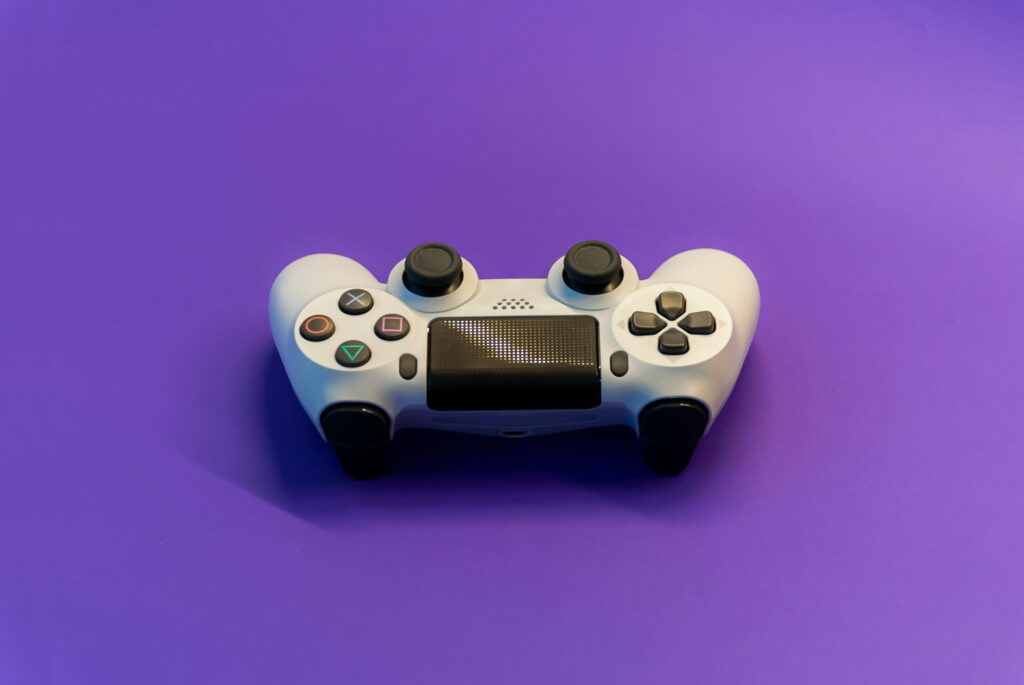The first esports tournament took place in 1972 at Stanford University for the game Spacewar. In 1980, Atari held the Space Invaders Championship, which drew more than 10,000 participants across North America. The 1990s saw the rise of console gaming and professional arcade gaming leagues, with console games such as Street Fighter II and Mortal Kombat becoming particularly popular.
Are esports in the olympics
The early 2000s saw the beginning of online multiplayer FPS games such as Counter-Strike and Quake, which led to the formation of professional esports leagues for these games. These leagues attracted large audiences, with some tournaments being watched by millions of people online.
In recent years, esports has grown tremendously in popularity, with tournaments for a wide variety of games being held all over the world. With its growing popularity, there has been discussion about whether esports should be included in the Olympics. While some believe that esports is not a true sport, others argue that it meets all the criteria for inclusion in the Olympics.
With its growing popularity and international reach, it seems likely that esports will continue to grow in popularity and could one day be included in the Olympics.
The rise of competitive gaming

In recent years, there has been a significant rise in the popularity of competitive gaming, also known as esports. According to a report by Newzoo, the global esports economy is expected to reach $696 million in 2017, up from $463 million in 2016. This growth is being driven by a combination of factors, including an increase in the number of people playing games, the popularity of live-streaming platforms such as Twitch, and the growing amount of investment from brands and organisations.
One of the most important developments for the future of esports is its inclusion in the 2018 Asian Games. This is a major step forward for the legitimacy of esports as a competitive sport, and it could lead to its inclusion in future Olympic Games. However, there are still some obstacles that need to be overcome before this can happen. For example, the International Olympic Committee (IOC) has said that it will only consider games that are “widely practised by men and women around the world”, which excludes many popular esport titles. In addition, there is a lack of consensus among game publishers on how to govern esports competition. Nevertheless, the inclusion of esports in the Asian Games is a positive sign for its future development.
What are the Olympics?
The Olympics are a multi-sport event that occurs every four years. The first modern Olympics took place in Athens, Greece in 1896. The Olympics were created by Pierre de Coubertin with the intention of promoting physical education and international understanding through sporting competition. The International Olympic Committee (IOC) is the governing body of the Olympic Movement, and they are the ones who decide which sports are included in the Olympics.
The history of the Olympics
The first recorded Olympics took place in 776 BC in Olympia, Greece. Since then, the Olympics have grown to become one of the world’s most prestigious sporting events. The Olympic Games are now held every four years, with summer and winter games alternating.
Over the years, the Olympics have evolved to become much more than just a sporting event. They have come to represent a global celebration of human achievement. The Olympic spirit is one of fair play, camaraderie, and respect for one’s fellow athletes.
The International Olympic Committee (IOC) is the governing body of the Olympics. The IOC is responsible for selecting the host city for each Olympic Games, as well as overseeing all aspects of the Games themselves.
The IOC is a not-for-profit organisation that relies on the support of sponsors and broadcast rights fees to cover the costs of running the Olympics. The IOC also uses some of its surplus revenue to support athletes and sports programs around the world.
The modern Olympics
The first modern Olympics were held in Athens, Greece, in 1896. The brainchild of French educator Baron Pierre de Coubertin, the International Olympic Committee (IOC) was founded in 1894 tostage the quadrennial event. Nowadays, the games are alternately held every two years, with Summer and Winter Games each taking place every four years. Coubertin believed that sports competition could bring people and cultures together in a peaceful way, an idea that continues to drive the IOC’s work today.
The International Olympic Committee (IOC) is a not-for-profit independent international organisation committed to building a better world through sport. The IOC was founded on 23 June 1894 by Pierre de Coubertin and Demetrios Vikelas with the goal of reviving the Olympic Games. The first edition of the modern day Olympic Games was held in Athens, Greece, in 1896.
There are currently 206 National Olympic Committees (NOCs) recognised by the IOC and 33 International Federations (IFs) accredited by the IOC. National Olympic Committees are responsible for appointing athletes to represent them at each edition of the Olympic Games and for promoting Olympism within their respective countries – while IFs are responsible for organising specific sports at each edition of the Games..
Why are esports not in the Olympics?
One of the main reasons esports are not in the Olympics is because there is no international governing body for esports. The International Olympic Committee has said that they are not considering esports for the Olympics because there is no federation regulating the sport.
The International Olympic Committee’s stance on esports
The International Olympic Committee (IOC) has been monitoring the development of esports and has held discussions with the gaming industry to learn more about the phenomenon. In October 2017, IOC President Thomas Bach stated that “Competitive ‘esports’ could be considered as a sporting activity, and it is open to discussion and study within the Olympic Movement.” However, he also stressed that any such addition would require adherence to the rules of the Olympic Charter, which prohibits any form of discrimination.
IOC members have also been divided on the issue. Some believe that esports are too similar to gambling, while others feel that they could be a valuable addition to the Olympics. The IOC has yet to reach a consensus on whether or not to include esports in future Olympic Games.
The Esports], which is recognized by the IOC as an international body responsible for overseeing esports, has expressed interest in adding esports to future Olympics. However, it is unclear if the IOC will ever agree to such a proposal.
The lack of a governing body for esports
There is no governing body for esports, which is one of the main reasons why the International Olympic Committee (IOC) has not yet recognized it as a sport. The IOC requires that any sport wishing to be recognized must have an internationally recognized governing body.
This lack of a governing body is also one of the main reasons why there are no official rules for esports. As a result, there is no universal way to measure esports players’ skill levels or to compare their performance across different games. This makes it difficult for the IOC to determine whether esports meets its criteria for being recognized as a sport.
Will esports be in the Olympics in the future?
Esports are becoming increasingly popular, with tournaments being held all over the world and watched by millions of people. Some people are even calling for esports to be included in the Olympics. However, there are a few obstacles in the way of this happening. In this article, we’ll take a look at the obstacles facing esports in the Olympics and whether or not they’re likely to be overcome.
The possibility of esports in the 2024 Olympics
There is a strong possibility that esports could be included in the 2024 Summer Olympics. While the International Olympic Committee (IOC) has not yet made a final decision, they have been considering the idea of adding esports to the lineup.
The main reason why esports could be included in the Olympics is because they are incredibly popular. In 2017, it was estimated that there were almost 400 million people playing and watching esports worldwide. This number is only expected to grow in the coming years.
Another reason why esports may be added to the Olympics is because they are a good way to reach out to young people. The IOC wants to make sure that the Olympics are relevant to young people and adding esports would definitely help with that.
Of course, there are some challenges that need to be addressed before esports can be added to the Olympics. For example, there need to be official governing bodies for each game that would be played. Additionally, all participating countries would need to agree on which games could be played.
Despite these challenges, it seems likely that we will see esports in the 2024 Summer Olympics. It would be a great way to appeal to young people and continue growing the popularity of the Olympics.
The possibility of esports in the 2028 Olympics
With the recent popularity of esports, there has been speculation that the International Olympic Committee (IOC) may add esports as an official sport in future Olympic Games. However, there are several hurdles that need to be cleared before this can happen.
First, the IOC would need to recognize esports as a sport. This is not as easy as it sounds, as there is no international governing body for esports like there is for traditional sports. Without such a body, it is difficult to create uniform rules and regulations that would be necessary for Olympic competition.
Secondly, even if the IOC were to recognize esports as a sport, it is unclear which games would be eligible for inclusion in the Olympics. There are hundreds of different esports games played at a professional level, and not all of them would be suitable for Olympic competition. The IOC would need to carefully select games that meet their criteria for inclusion in the Olympics.
Finally, even if all of these hurdles were cleared, it is unclear whether the Olympics would be able to attract the best esports athletes in the world. Many professional gamers are signed to exclusive contracts with their teams and sponsors that prevent them from competing in other events. This could make it difficult for the Olympics to field a competitive team.
Despite these challenges, some believe that it is only a matter of time before esports are added to the Olympics. With the growing popularity of gaming around the world, it seems likely that the IOC will eventually cave to pressure and add esports to the program. Only time will tell if this prediction comes true.
